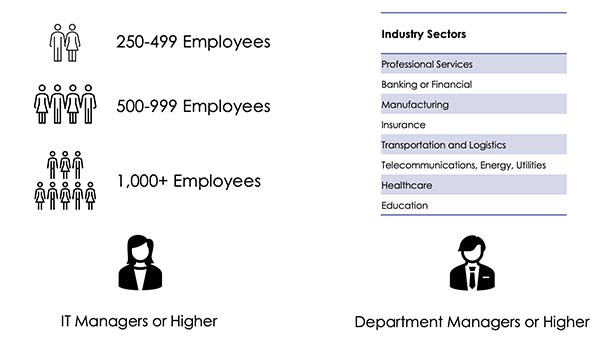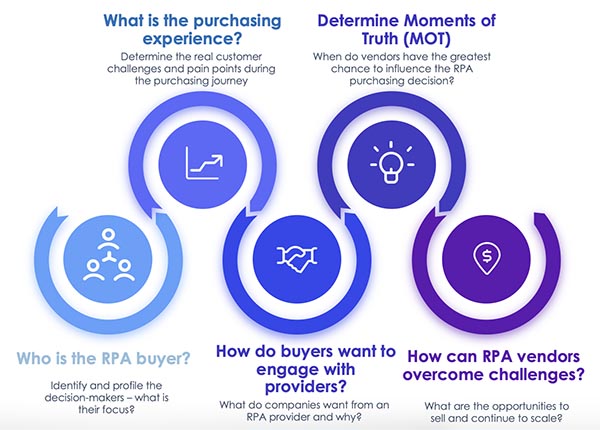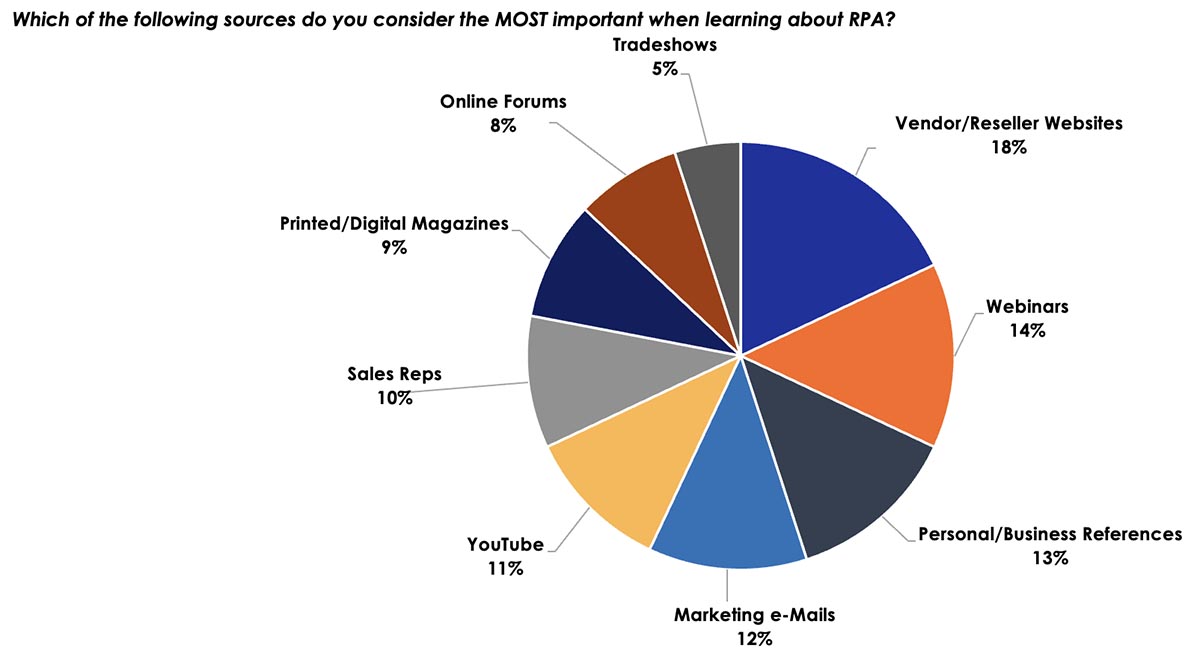- Trends driving the increased interest in document and process automation solutions include an uptick in hybrid and remote working, a challenging labor market, economic uncertainty, digital transformation initiatives, and increased technological advancements.
- Through its research, Keypoint Intelligence identified six key customer touchpoints where vendors can enhance the customer journey and help customers scale RPA within their organizations.
- Vendor/reseller websites are among the top sources of information for customers that are learning about RPA.
By Lisa Brown
Introduction
Automation is the future of work. That’s a theme that came out of Keypoint Intelligence’s recent research on Robotic Process Automation (RPA). After surveying 825 respondents from medium-sized and large companies across the US, the study shows that most companies are considering and investing in document and process automation solutions. In addition, 48% of the surveyed businesses are allocating between 10% and 20% of their total annual budgets to document and process automation spending over the next 18 months.
What is Driving the Demand for RPA?
There are several trends driving the increased interest in document and process automation solutions. Some of these factors include an uptick in hybrid and remote working, a challenging labor market, economic uncertainty, digital transformation (DX) initiatives, and increased technological advancements. These shifts prompted us to conduct a study that analyzed the demand for RPA and how vendors can influence the customer journey.
Figure 1: Target Respondents for Keypoint Intelligence’s RPA Research

N = 825 Total Respondents
Source: Robotic Process Automation Multi-Client Study; Keypoint Intelligence 2023
One primary goal of this analysis was to outline what the customer journey for RPA looks like and identify key moments when vendors have the greatest chance to influence that journey. We determined who the RPA buyer is, evaluated the purchasing experience, explored how customers want to engage with providers, and offered recommendations for how vendors can address and overcome the adoption inhibitors. By evaluating these steps, we identified six key customer touchpoints where vendors can enhance the customer journey and capitalize on opportunities to help customers scale within their organizations.
Figure 2: The RPA Customer Journey

Source: Keypoint Intelligence 2023
One of the very first customer touchpoints where a vendor can have an impact on the journey is during the awareness phase. This is where individuals are first learning about RPA, its vendors, and what solutions are available. Our research shows that vendor/reseller websites are among the top sources of information for customers that are learning about RPA. As such, these websites present an opportunity for vendors to capture a customer’s attention early on.
Figure 3: Top Sources for Learning About RPA
 '
'
N = 825 Total Respondents
Source: Robotic Process Automation Multi-Client Study; Keypoint Intelligence 2023
The Bottom Line
Several other touchpoints and significant takeaways were validated by the data, but a top recommendation for RPA suppliers is to use a consultative approach when selling RPA to new and existing customers. Our study demonstrates that there are multiple points in the adoption process—from initial consideration to post-purchase—where a client might plateau or become stuck, and customers require prolonged support from their vendor. This support involves a partnership that does not end when the RPA bot is acquired. In addition to providing a technical solution, today’s RPA vendors must also provide a service that extends beyond a single point in the journey. For more information on this survey and its findings, we invite you to view an on-demand webinar about our RPA research.
As a Principal Analyst at Keypoint Intelligence, Lisa Brown is primarily responsible for consulting projects within the office group. She has nine years of market research experience in the office print and technology industry. Prior to joining Keypoint Intelligence, Lisa held a senior analyst role at gap intelligence and worked directly with manufacturers. In this role, she provided analysis and insight on market trends and competitive strategies.














